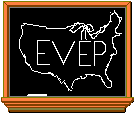
WHERE'S THE LEVER?
Long-Time NY Election Integrity Advocate Opts Out of Op ScanFebruary 22, 2009
by Howard Stanislevic
New York City--
Since the passage of HAVA, Teresa Hommel has been a tireless leader in the fight for voter-marked paper ballots in New York as an alternative to direct recording electronic (DRE -- usually touch screen) voting machines that lack a reliable voter-verified paper trail. But in a Feb. 22nd essay published on her website, WheresThePaper.org, entitled: Why Keep the Lever Voting Machines?, she comes to the conclusion that the state should keep its current manually operated voting system, rather than switch to a computerized paper ballot optical scan (PBOS) system.*
Why? In a nutshell, because it's too expensive to make the switch and do it right.
Hommel writes:
For nearly six years we have worked against improper use of computers in elections. ... We have said, "IF WE HAVE TO REPLACE OUR LEVER VOTING MACHINES, we should choose PBOS." At this time it appears that no DREs are likely to be certified or purchased in New York. It is very late in the process to say, "Stop! Let's not computerize at all!" But that is what we are saying.
Rather than continuing to fight the last war (PBOS vs. Brand X, i.e., DREs), Hommel goes on to say that lever machines are more secure, easier to manage and less expensive to maintain and use than any other voting technology.
She says that in this time of economic crisis, the higher cost of computerized elections will have to be paid for with cuts to other essential services. Recent conversations we have had with county legislators and election commissioners bear this out.
In fact, so far at least three New York counties have passed resolutions in favor of keeping their lever machines, either unanimously or with only minor opposition, with more such resolutions expected.
~snip~
In this realistic assessment of New York's electoral system, Hommel discusses the obstacles to keeping our lever machines, as well as the following benefits of doing so:
* Lever voting machines cost less, require fewer observers, and don't use software.
* Our counties don't have to spend one extra dollar to use lever machines, because we already have them.
* Lever machine technicians are paid somewhat less than computer technicians.
* Lever voting machines are rarely tampered with because it takes too much time to do so. For this reason these machines do not require a group of observers to sit and watch them continuously.
* Without software that can fail in unexpected ways, software-independent audits are not required.
* Lever machines are immune to systemic exploitation.
* Meaningful, observable testing of lever machines can be readily accomplished.
* Lever voting systems comply with HAVA when used in combination with accessible ballot marking devices for voters with disabilities and limited English proficiency. (See HAVA's definition of "Voting System" in Section 301 (b)).
We strongly recommend that anyone truly concerned about the integrity of New York's elections read Ms. Hommel's excellent piece in its entirety. It's a far cry from some of the dogma we have been seeing from some other advocates who apparently have not fully considered the problems of election verification, or what the solutions would actually entail -- even as they continue to advocate for more computerized vote counting under the guise of voter-marked paper ballots.
http://e-voter.blogspot.com/2009/02/wheres-lever-long-time-ny-election.html